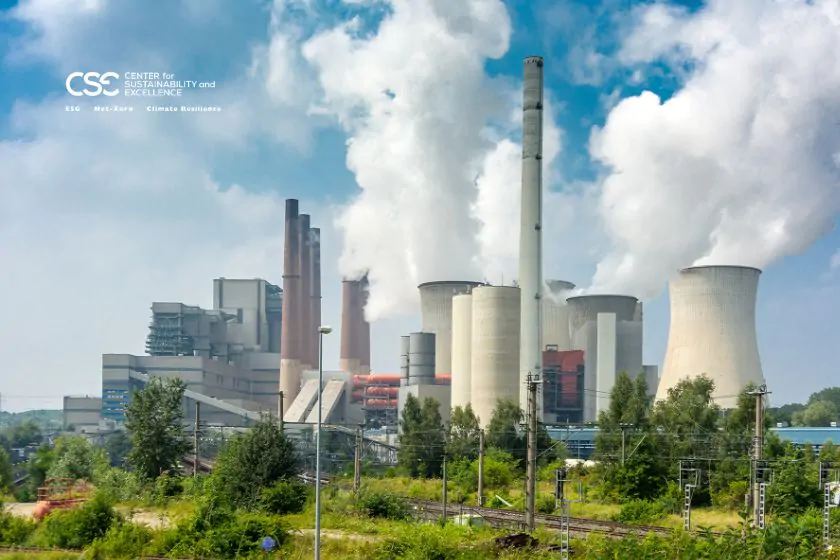Shell’s LNG Expansion: Implications for Canadian Sustainability Experts

In a major energy announcement, Shell revealed plans to add up to 12 million tonnes of new liquefied natural gas (LNG) capacity by 2030. Central to this expansion is Canada—specifically, the LNG Canada project in Kitimat, BC. As one of the largest energy investments in the country’s history, it represents both opportunity and risk. For […]
Alberta’s Pipeline Plans: The Role of ESG Training in Energy Projects

As Alberta’s government advances plans for a new crude oil pipeline to the West Coast, the debate around energy and sustainability intensifies. The province relies heavily on energy revenues. However, today’s infrastructure must align with modern environmental and social expectations. ESG (Environmental, Social, and Governance) standards are now essential in shaping energy projects. A Strategic […]
RBC’s Shift in Sustainable Finance: A Wake-Up Call for ESG Professionals

In a surprising move that has sent ripples through the financial and sustainability sectors, Royal Bank of Canada (RBC), one of the nation’s largest lenders, has decided to walk away from its sustainable finance targets. This development raises critical questions about the role of ESG (Environmental, Social, and Governance) commitments in the Canadian financial industry […]
Green Leadership at the G7: What the Kananaskis Summit Means for the Sustainability Agenda

From June 15 to 17, global leaders met in Kananaskis, Alberta. This was the 50th G7 Summit. More importantly, it came at a time of rising global instability. Geopolitical tensions are growing. So are economic risks and climate crises. Therefore, this summit is not just tradition. It’s a test of the G7’s commitment to a […]
Canada’s 2035 Emissions Targets: What Sustainability Professionals Need to Know

Canada’s 2035 Emissions Targets: A 2035 Milestone with Global Implications In December 2024, the Canadian government announced a new national commitment: to reduce greenhouse gas emissions by 45%–50% below 2005 levels by 2035. This move aligns Canada with global efforts to limit warming to 1.5°C, as outlined in the IPCC’s Sixth Assessment Report. It builds […]
Canada’s Third Green Bond Issuance: Advancing Sustainable Finance

The Government of Canada is strengthening its commitment to sustainable finance with its third green bond issuance, announced in February 2025. This move signals Canada’s expanding role in global ESG (Environmental, Social, and Governance) leadership. It also supports the shift toward climate-focused investments and clean economic growth. Green bonds help fund environmentally beneficial projects like […]
Canadian Banks’ Departure from Climate Coalitions: What It Means for ESG Commitments

In a move raising eyebrows across the global financial and sustainability communities, several major Canadian banks have quietly withdrawn from prominent international climate coalitions. These exits signal potential shifts in how Canada’s financial sector approaches environmental, social, and governance (ESG) commitments—and could have lasting implications for the country’s role in sustainable finance. Why Are Canadian […]
Canadian Professionals Champion Corporate Sustainability Through CSE’s Certified ESG Practitioner Program

Canadian Professionals Champion Corporate Sustainability Through ESG Practitioner Certification Toronto, Canada – March 25, 2025 – The Center for Sustainability and Excellence (CSE) is transforming Canada’s sustainability landscape with its Certified Sustainability (ESG) Practitioner Program – Leadership Edition 2025. Corporate sustainability strategies and ESG regulations evolve quickly; Canadian professionals can now acquire specialized skills to […]
Alberta’s Coal Policy Shift: Navigating the Environmental and Economic Impacts

Alberta’s Coal Policy Shift: Navigating the Environmental and Economic Impacts Alberta Coal Policy Shift through the decision to lift its coal exploration moratorium marks a pivotal moment for both environmental advocates and economic developers. This significant Alberta coal policy change brings with it profound implications for regional environmental sustainability and economic growth. Understanding Alberta’s Coal […]
Canada’s Elimination of the Consumer Carbon Tax: Implications for Sustainability Initiatives

Canada’s Elimination of the Consumer Carbon Tax: Implications for Sustainability Initiatives Canada’s recent decision to eliminate the consumer carbon tax has sparked extensive discussions among sustainability professionals, policymakers, and environmental advocates. This policy shift has raised critical questions about Canada’s future commitment to sustainability. Understanding the Carbon Tax Removal The consumer carbon tax was initially […]
